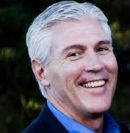“At the heart of liberty is the right to define one’s own concept of existence, of meaning, of the universe and the mystery of human life.”
— Retiring Supreme Court Justice Anthony Kennedy, 1992, Planned Parenthood v. Casey.
And, thus, we read some of the most vacuous nonsense ever uttered from our nation’s echelons of power.
How so?
Sometimes absurdity is the best teacher. Let’s suppose you are a brand-new college student. You have just enrolled in your first semester at my university: Oklahoma Wesleyan University. You have selected an academic major. You are finally in college and you head off to class. You are ready to learn.
Now fast forward. It is commencement day. You are about to graduate. The time you have been waiting for is here. The speaker is finished and all the graduates stand and approach the platform.
Your name is called. The academic dean gives you your honors cord. Your family is in the audience cheering. You proudly walk across the stage toward me. We join in a vigorous handshake as I give you your long-awaited diploma and I lean over and whisper in your ear, “Congratulations! You now have a degree in opinions.”
After four long years of study, after eight semesters of classes, after countless late nights of cramming for tests, after dozens upon dozens of quizzes and papers — after so much hard work, I have the audacity to hand you a diploma and essentially say, “It really doesn’t matter what you believe as long as it works for you. Here is your degree in opinions.”
This is truly ridiculous. The absurdity is obvious. We all know that you didn’t go to college to major in “whatever” or to get a degree in “opinions.” To the contrary, you went to college to, well, actually learn something.
When it comes down to it on commencement day — your opinion really doesn’t matter, nor does mine. What matters is quite simple. Did you learn what was required of you? You can’t pretend to be educated if all you have is an opinion. There are indisputable truths that serve as the foundation for any meaningful college degree. Getting an education requires learning such truths, not simply holding to your opinions. To claim otherwise is just absurd.
Post-modernity, and its sages such as Justice Kennedy, argue that there is no such thing as objective truth and that all values, all morality, and all ideas of right and wrong and good or bad are merely the products of an ongoing “community narrative” or social dialogue within a “global village.”
Truth is a construct, not a precept. It is a conversation not a conclusion. Truth is really not true you know. It’s all a matter of opinion. We all have “the right to define [our] own concept of existence, of meaning, of the universe and the mystery of human life.”
Do we really believe this and are we willing to live with the consequences of such bad ideas?
The Rev. Martin Luther King Jr. was once asked why he believed it was just to break the law of the land in his effort to promote civil rights and racial justice. In his famous “Letter from a Birmingham Jail” he said the following:
“How can you advocate breaking some laws and obeying others? The answer lies in the fact that there are two kinds of laws: just laws and unjust laws. One has not only a legal but a moral responsibility to obey just laws. Conversely, one has a moral responsibility to disobey unjust laws.”
And what is a just law? “A just law squares with the moral law or the law of God.”
King understood something that perhaps we would all do well to remember. Opinions can be dangerous, self-centered and cruel. Indeed, they are used to justify all kinds of unjust things.
King knew that there was a “self-evident” truth, a “moral law,” a “law of nature and nature’s God” which served as the only solid foundation for human value, justice and freedom.
He also understood very well that man’s opinions, i.e. our subjective and often absurd attempts to “define our own concepts of meaning,” always lead to selfishness and deception, and, thus, set the stage for the powerful to construct systems of oppression over the powerless. He understood what is right and wrong, good and bad, pure and profane is measured by degrees of truth and not degrees of opinions.
“Judges are confined to interpreting and applying the Constitution and its laws as they are written and not as we might wish they were written “
— Judge Brett Kavanaugh
 Everett Piper, president of Oklahoma Wesleyan University and a columnist for the Washington Times, is the author of “Not A Day Care: The Devastating Consequences of Abandoning Truth” (Regnery 2017).
Everett Piper, president of Oklahoma Wesleyan University and a columnist for the Washington Times, is the author of “Not A Day Care: The Devastating Consequences of Abandoning Truth” (Regnery 2017).
The views expressed in opinion articles are solely those of the author and are not necessarily either shared or endorsed by Black Community News.
 CURE News and Clergy Blog News and Commentary for Christians
CURE News and Clergy Blog News and Commentary for Christians



